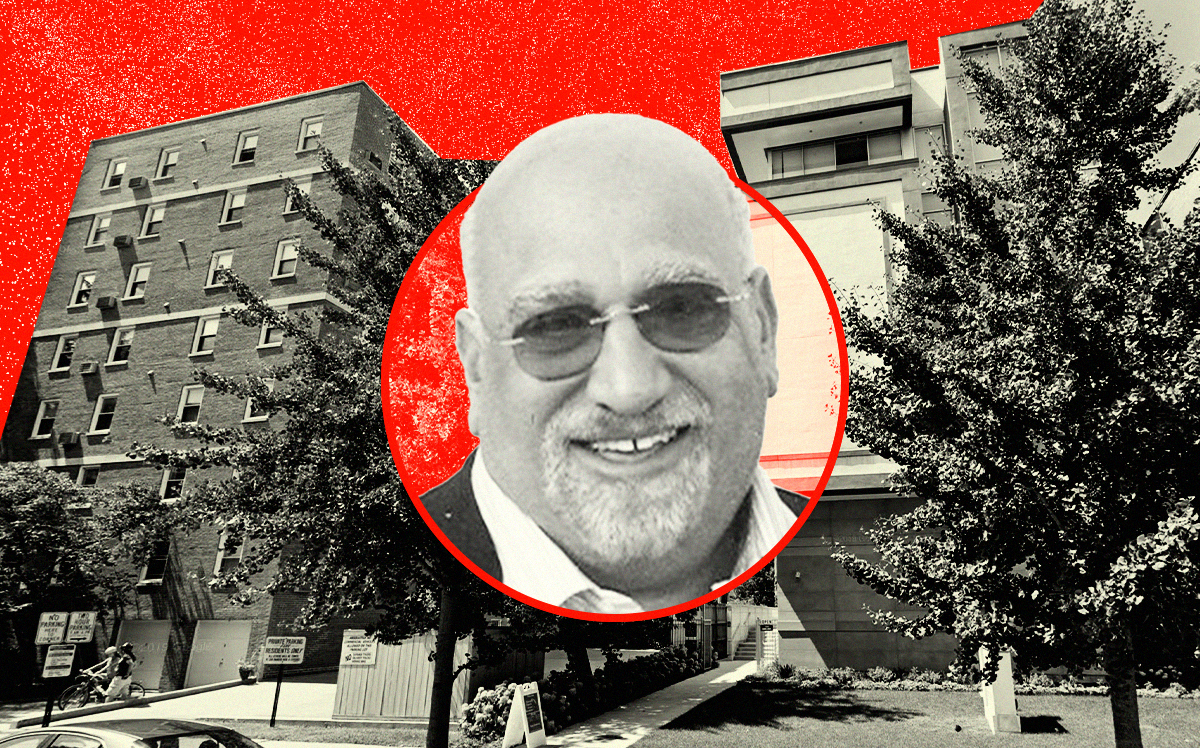
Looks like big loss for Carter’s Franklin Street on Evanston office sale
Investor Cameel Halim trips up Evanston homeless shelter plan
Judge rules in landlord’s favor, delaying vote of approval for zoning change at former hotel

One of Evanston’s largest commercial real estate owners is leading the fight against allowing a homeless services facility to operate permanently in the North Shore suburb’s downtown.
Cameel Halim, who owns about 4,000 apartment units in the Chicago area, including dozens of Evanston buildings, sued the suburban government and its mayor, Daniel Biss, last week.
His complaint alleged an advisory commission to the city council denied his rights as a local property owner by holding a meeting on whether to recommend approval of a rezoning that would allow a homeless shelter to keep operating at 1556 Oak Avenue, which is near his antique timepiece museum and another property he’s redeveloping from an assisted living facility into a hotel.
The nonprofit Connections for the Homeless started operating the facility after the former Margarita Inn hotel shut down during the pandemic, under what was initially called a temporary basis.
A Cook County judge on Friday agreed with Halim, finding that local law requires Evanston’s land use committee to grant requests to delay a hearing from real estate owners within 500 feet of a property with business before the local government body.
Halim claimed the committee held a hearing last year despite his request for a later date, and Evanston City Council had to remove a vote for final approval from its Monday night meeting agenda due to the ruling, according to Halim and his lawyer, Monica Ann Forte.
While local news outlets have reported on the controversial Oak Avenue homeless services facility and shelter run by the nonprofit, Halim has largely kept the extent of his real estate holdings under the radar. A spokesman for Evanston did not immediately return a request for comment on whether the city has concerns regarding its relationship with one of its largest commercial property owners in light of the dispute, and the mayor’s continued support of the project.
Connections and Evanston officials were criticized by Halim for expanding resources for homeless people locally in a way he said has drawn more people from the Chicago region into the suburb, which he claims shoulders a disproportionately high share of serving the homeless.
“It has really devastated the town,” Halim said in an interview with The Real Deal. “We have no problem taking care of the homeless in Evanston. We are not a place that all the suburbs of Chicago send their homeless to. I live in Winnetka and my office in Wilmette. I want Winnetka and Wilmette to take care of their homeless.”
Biss specifically addressed this talking point in a letter to the Evanston community written Thursday, calling Wilmette and Winnetka suburbs that are “fundamentally different from ours,” before the judge issued the temporary restraining order in favor of Halim that threw a wrench into the city’s approval process.
“They’re barely served by the CTA, and they aren’t home to an elite university, and these fundamental distinctions bring with them unique opportunities and challenges and will inevitably make Evanston a more welcoming place for people living on the economic margin,” Biss said. “The homelessness crisis is here, and turning Connections away won’t change that — it will simply diminish our ability to address it in a compassionate and responsible way.”
The city did not immediately respond for how it plans to adjust the approval process for the proposal in light of the court ruling. Connections has a deal to buy the former hotel property that is contingent on getting zoning and land use approval to be able to permanently run the facility as long as it meets the requirements of a special use permit. Connections in November rejected the idea of moving its shelter from the Margarita Inn downtown to a site on Howard Street, Evanston Now reported.
Read more

Evanston’s E2 is latest large apartment building to hit market

Wirtz family sells entire Evanston apartment portfolio for $35M




